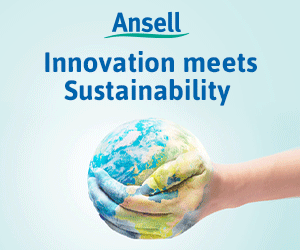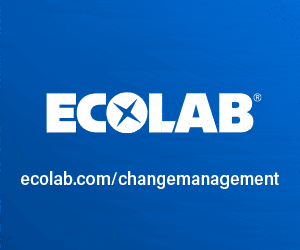CPhI Southeast Asia Report: Executives call for track-and-trace schemes
Generics exports and harmonisation continuing apace, with Thailand forecast strong near-term opportunities
CPhI’s ASEAN Pharma 2020 Report points to Thailand and Indonesia having the largest near-term generics export potential, as regional executives come out in favour of an ASEAN-wide track-and-trace scheme. The report’s findings, which have been released ahead of CPhI Southeast Asia (4-6 March, Bangkok) summarise the opportunities and threats across the major pharma markets in the region.
The event, now in its 9th edition, is a regional hub for the emerging pharma industry and last year saw a sudden surge in attendance, rising 50% to more than 7,000 attendees. The uptick highlights the dynamism now accelerating in the region.
Macroeconomic and demographic similarities were seen across several major economies – Thailand, Indonesia, and Vietnam – with domestically driven markets that are now potentially ripe for higher growth in exports, especially those of finished dose generics.
The changing opportunities are attributed to rising GMP standards and increased regional harmonisation. However, the report also points to a potential survival of the fittest amongst the local manufactures, with a number of acquisitions likely, as companies employ economies of scale to expand. This latter finding is particularly significant for CPhI South East attendees, highlighting the importance of meeting and working with the right partners in the region.
“The opportunities in Southeast Asia are now accelerating quickly, and with so much change it is essential companies act now to build the right network, with the right partners and have access to the latest information," commented Silvia Forroova, Brand Director at Informa Markets.
Forroova said that's why the organiser is so optimistic for this year’s CPhI South East Asia, "as it brings all parts of the supply chain together, creating a complete pharma platform dedicated to serving the needs of Southeast Asian pharma economies".
CPhI South East Asia plans to welcome more than 7,000 attendees and 280+ exhibitors from 100+ countries. "It’s a thriving pharma hub that is expanding quickly”, Forroova added.
Market feedback
Nearly all regional respondents stated they were looking to work with international partners in the year ahead. Of these, the most popular reasons for partnering were to help ‘increase the company’s knowledge base’ (67%), and ‘to help launch products from outside the region’ (65%).
Similarly, of the international executives from outside the region surveyed, 88% of respondents had a willingness to work or invest within the region in the next three years.
Growth strategies identified for the next 1-3 years include a surprising 29% who are looking to ‘invest in a new facility’, 41% ‘partner with a local manufacturer’, ‘use a distributor’ (23%) and ‘import directly’ (7%). These findings highlight the important role CPhI South East Asia will play and the event has seen a significant rise in international attendees within the last year.
Combat drug counterfeiting
Perhaps, the single most surprising finding was the call for the introduction of a track-and-trace style scheme to combat drug counterfeiting, with a remarkable 93% of respondents in favour.
Indonesia has been amongst to the first to move with its serialisation scheme expected to be rolled out between 2020 and 2025, and Singapore is exploring GS1 2D barcodes, but the report suggests other markets and developments should follow quickly in the near future.
“What we are also seeing is that new segments are quickly identifying Southeast Asia as a growth opportunity. For example, in response to industry changes, we introduced a natural extracts and herbal-based medicines (NEX) zone at the event this year.
But more widely contract services demand is growing extremely quickly, as is the demand for greater content on ‘how to launch new products in the region’ and we have designed much of the event’s agenda to aid the regional-international partnerships that are proliferating. CPhI South East Asia is more than an opportunity to meet existing contacts, it is primarily a resource to meet new partners and grow new networks. Consequently, the Business Matchmaking Services, Supplier Finder Desks and Discovery Areas are precited to be extremely busy this year” added Forroova.
CPhI South Asia Conference
To help accelerate opportunities across the region the CPhI South Asia Conference includes full-day conferences, plenary sessions and keynotes covering the full spectrum of pharma supply in the region.
Conference highlights include all-day sessions on the Asian FDA Framework, Thai Pharmaceutical Manufacturers Association, Multi-functionals of herbals medicine on NCDs, the ASEAN Pharmaceutical roundtable, and Innovative Packaging for Pharmaceutical and Herbal Products. Additionally, running throughout the event – on the show floor – will be a series of exhibitor seminars, which provide vital information on new products, new services, innovations and industry news.
CPhI South East Asia will take place at the IMPACT centre with six co-located events: CPhI, P-MEC, ICSE, InnoPack, FDF and NEX. The event is the biggest regional hub for the industry to source low-cost manufacturing equipment, ingredients and finished generic drugs, through to contract services, packaging and natural extracts.




